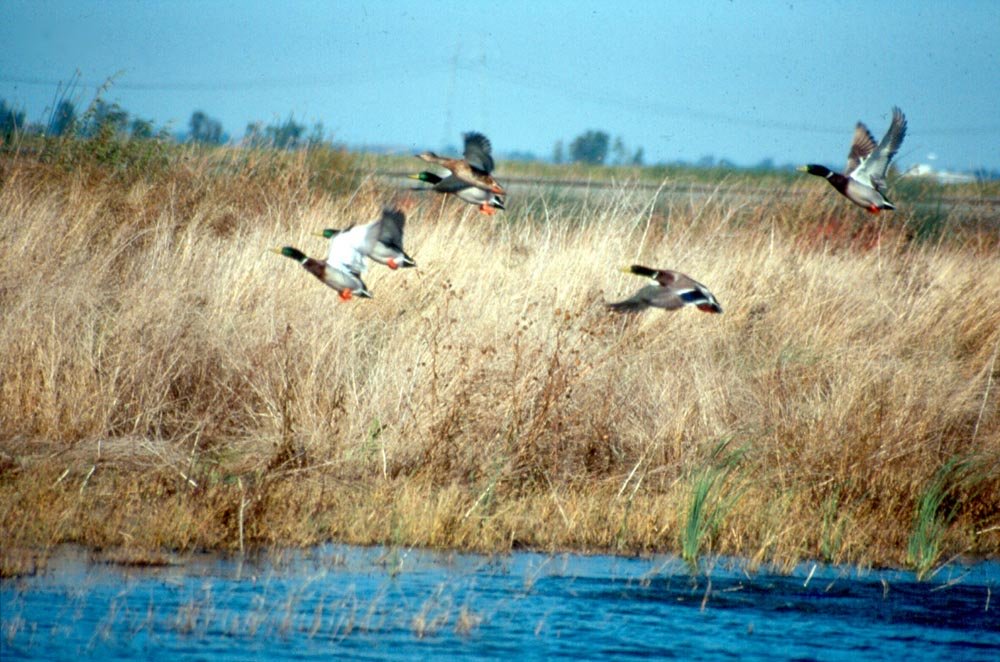Environmental update: The wet season and pollution prevention
With the arrival of fall, the wet season commences in California, bringing rains that recharge your garden. Substantial rainfalls saturate the ground, which creates runoff on to streets and sidewalks, and ultimately into city storm drains.
Runoff flows into this stormwater system from the places where we live, shop, work and recreate, and because of this, runoff can degrade stormwater quality. Unlike wastewater, which is treated prior to being released into the environment, stormwater flows untreated to local waterways and to the Sacramento River.
Typical pollutants in stormwater include: petroleum products, dirt, yard waste, pet wastes, trace minerals, metals, detergents, soaps, garbage, pesticides, chlorinated water and paint. While some of these items occur naturally in the environment, when our activities add these items to runoff, they often create unhealthy concentrations of these items in water.
Downstream from Davis, Sacramento River water is used for agriculture, recreation, potable water and wildlife habitat. The city’s Stormwater Program was established to protect these uses and to meet the requirements of the city’s permit with the State Water Resources Control Board.
To help keep our stormwater free from pollutants, follow these simple pollution prevention tips:
- Avoid using water to wash down any outdoor surfaces. Use a broom or another dry-cleaning method whenever possible.
- When draining pool or spa water, make sure the water is clear (not green or brown), pH neutral (6.0 to 8.0), and has chlorine less than 1 part per million. You may drain without restriction to the sanitary sewer.
- Avoid washing cars at home. Instead, use a car wash facility where the wash water is drained into the sanitary sewer and directed to the wastewater treatment plant. If a vehicle must be washed at home, then direct wash water to a landscaped area. Use minimal amounts of water and use biodegradable soaps. Consider using waterless car wash products.
- Check your vehicle for leaks. Have leaks repaired, recycle old auto fluids and clean up spills and leaks using absorbent materials (cloths and kitty litter).
- Dispose of household hazardous waste materials at the Yolo County Landfill Hazardous Waste Drop-Off Program (Friday and Saturday from 7:30 a.m. to 3:30 p.m.).
- Pick up your pet wastes, seal them in a bag, and dispose of them in the garbage (not the organics cart).
- Keep rainwater out of your trash can. Keep the lid on your trash container closed when not in use.
- Limit the use of pesticides and herbicides. Look for less toxic products endorsed by Our Water Our World. OurWaterOurWorld.org
Planting and irrigation
Fall, with its shorter days and cooler temperatures, is the best time of year to plant. Landscape water needs decrease in the fall and irrigation can be reduced by shortening each watering cycle or eliminating a watering day or two each week. If it rains, turn your irrigation system off for at least 48 hours after a rain event. Consider turning off your irrigation system for the winter.
Reducing the amount of water you use from November through February may reduce your water and sanitary sewer charges. The volumetric component of your sanitary sewer rate is adjusted on an annual basis and is based on your prior winter’s average water consumption (November – February water usage).
— Rhys Rowland is a City of Davis Environmental Programs Specialist; this column is published monthly. Reach him at RRowland@CityofDavis.org. Visit GreenerDavis.org for more information.
Crossposted from the Davis Enterprise
Published online on October 16, 2019 | Printed in the October 16, 2019 edition on page A7
FACEBOOK FEED
Photos from Cool Davis's post ... See MoreSee Less
Stand with Cool Davis! The Cool Davis board of directors is working hard to move our organization towards a future that belongs to everyone. Anyone — friends, family, neighbors, organizations, and businesses – can donate starting TODAY, April 18 through midnight May 2, 2024, to support the work of Cool Davis in the community. Small amounts can make a big difference! #bdog2024
Kerry Daane Loux Kristin Heinemeier LisaABaker, Jason Bone, Ken Kirsch MAK Design+Build Inc. Christine Granger Matt Price Rekha Vaitla Johannes Troost www.bigdayofgiving.org/cooldavis
... See MoreSee Less






